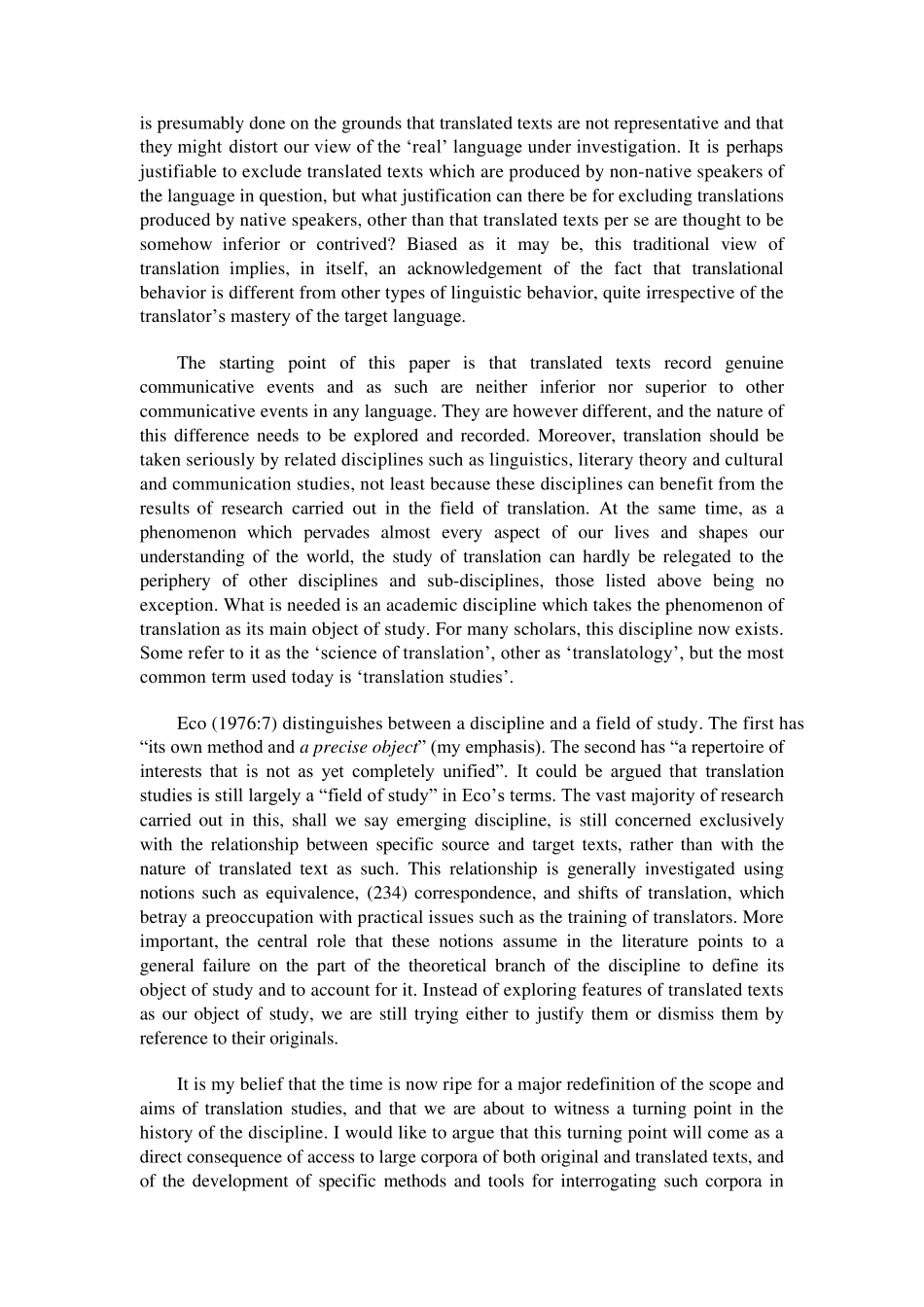Corpus Linguistics and Translation Studies Implications and Applications Mona Baker Cobuild, Birmingham Abstract The rise of corpus linguistics has serious implications for any discipline in which language plays a major role. This paper explores the impact that the availability of corpora is likely to have on the study of translation as an empirical phenomenon. It argues that the techniques and methodology developed in the field of corpus linguistics will have a direct impact on the emerging discipline of translation studies, particularly with respect to its theoretical and descriptive branches. The nature of this impact is discussed in some detail and brief reference is made to some of the applications of corpus techniques in the applied branch of the discipline. 0. Introdu ction A great deal of our experience of and knowledge about other cultures is mediated through various forms of translation, including written translations, sub-titling, dubbing, and various types of interpreting activities. The most obvious case in point is perhaps literature. Most of us know writers such as Ibsen, Dostoyevsky and Borges only through translated versions of their works. But our reliance on translation does not stop here. Our understanding of political issues, of art, and of various other areas which are central to our lives is no less dependent on translation than our understanding of world literature. Given that translated texts play such an important role in shaping our experience of life and our view of the world, it is difficult to understand why translation has traditionally been viewed as a second-rate activity, not worthy of serious academic enquiry, and why translated texts have been regarded as no more...


